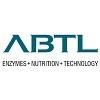Proteases benefits: What if they brought more than just releasing amino acids?
Published: March 19, 2024
Source : L. Lahaye / Jefo Nutrition Inc., Saint-Hyacinthe, QC.
Additives are part of the strategies for adding value to food, and their interest, in the current context of raw material prices, is even more evident. Nevertheless, there is a tendency to simplify their action to stick to the primary logic of their nature and easily generate an economic advantage. In doing so, we are likely to limit ourselves by failing to fully consider the scope of their work. In the case of the increasingly popular proteases, this involves a "simple" recovery of the digestible amino acids that can be released from raw materials. Rather than only taking into account their digestibility enhancing aspect, which certainly allows us to save money through the use of recovery matrices and the subsequent reduction of protein inputs, we would benefit from better understanding and exploring the properties of proteases and the related benefits. Exogenous proteases can indeed be used in combination with other enzymes. They can resist anti-nutritional factors, modulate the microbiota, participate in a better gastrointestinal health, and overall improve digestion. This goes beyond a simple gain in formulation and these positive impacts on health and the environment deserve to be taken into account in their added value. Additives in general will benefit from a more complete understanding and review of their nature and benefits in order to position them as valuable tools to bring the animal nutrition industry into the next era of precision gut nutrition.
Keywords: protease, digestibility, gut health, amino acids, feed formulation, additives.
Presented at the 2023 Animal Nutrition Conference of Canada. For information on the next edition, click here.
Content from the event:
Related topics:
Authors:
JEFO Nutrition Inc.
Recommend
Comment
Share

16 de abril de 2024
That's great food for thought. Can you provide with more links and references to additional benefits of proteases that go beyond releasing amino acids?
Recommend
Reply

Would you like to discuss another topic? Create a new post to engage with experts in the community.

















